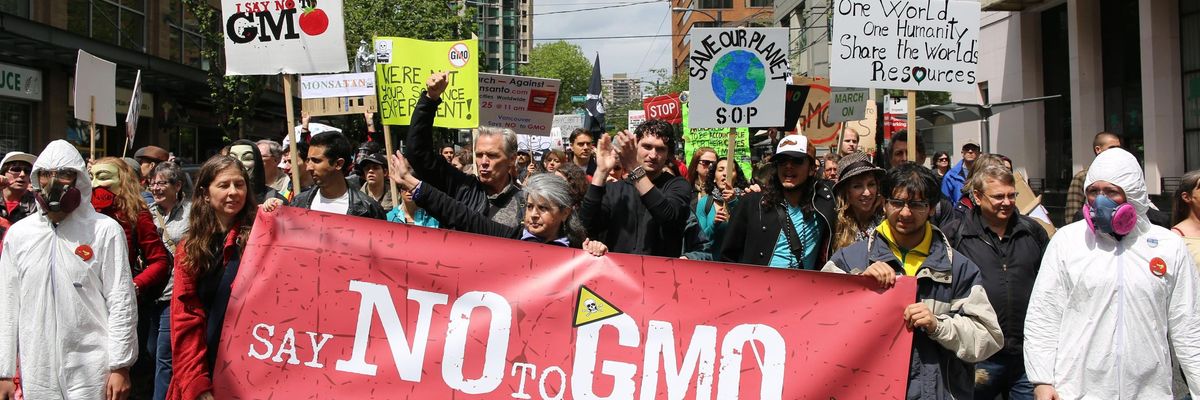Amid an ongoing lawsuit challenging what critics call deceptive Trump-era U.S. Department of Agriculture regulations for labeling genetically engineered foods, a leading advocacy group on Wednesday announced the launch of a consumer action campaign ahead of the new rules taking effect on January 1.
"These regulations are not about informing the public but rather designed to allow corporations to hide their use of genetically engineered ingredients from their customers."
"Consumers have fought for decades for their right to know what's in their food and how it's produced," Meredith Stevenson, an attorney for the Center for Food Safety (CFS), said in a statement. "But instead of providing meaningful labeling, USDA's final rules will only create more uncertainty for consumers, retailers, and manufacturers."
CFS is set to launch a nationwide consumer campaign using "citizen investigators" to identify corporations using QR codes instead of on-package text or symbol labeling to conceal their use of GMOs. Those companies will then be pressured to adopt on-package text or symbol labeling in addition to QR codes.
The use of QR codes has been called discriminatory against millions of poor, elderly, and rural people who don't own smartphones, or who live in areas where grocery stores lack internet connections.
In December 2018, the USDA released the new labeling rules two years after the Republican-controlled Congress passed the National Bioengineered Food Disclosure Law. Sonny Perdue, Trump's industry-friendly agriculture secretary, claimed the new standards for genetically engineerd (GE or GMO) foods would increase "the transparency of our nation's food system" and provide "clear information and labeling consistency for consumers."
Critics, however, said the regulations are an insidious attempt to conceal Big Ag's increasing use of genetically engineered ingredients in food products, and that the new rules leave most GMO-derived foods unlabeled.
"These regulations are not about informing the public but rather designed to allow corporations to hide their use of genetically engineered ingredients from their customers," Andrew Kimbrell, CFS executive director said in a statement.
"It is a regulatory scam which we are seeking to rescind in federal court," he added. "In addition, we are urging our million CFS members and others to become citizen investigators and find and expose the companies that are using QR codes instead of on-package text or symbol labeling, thereby trying to keep us in the dark about what they have put in our food."
In July 2020, CFS filed a lawsuit in a San Francisco federal court on behalf of a coalition of advocacy groups and retailers--including Natural Grocers, which has 157 stores in 20 states, and Puget Consumers Co-op, the largest U.S. community-owned food market--challenging the USDA rules.
"A disclosure law that exempts 70% of the foods it is supposed to disclose is not a meaningful disclosure law," Tara Cook Littman of Citizens for GMO Labeling, a plaintiff in the case, said at the time of its filing. The new rules are a "fraud," she said, that allow "producers to keep their GMO ingredients secret."

